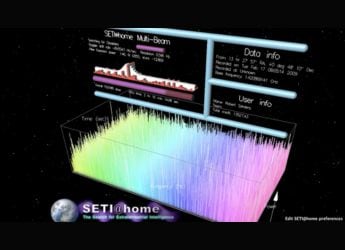- Home
- Science
- Science News
- Greenland's Fossils Reveal an Ice Free Tundra Less Than a Million Years Ago: Report
Greenland's Fossils Reveal an Ice-Free Tundra Less Than a Million Years Ago: Report
Fossils found in Greenland's ancient ice sheet reveal a possibility of a green tundra covered in flowers and plants less than a million years ago.

Photo Credit: Pixabay/ Aline Dassel
Greenland was almost entirely ice-free at some point in the last million years.
New research reveals that Greenland was almost completely ice-free at some point in the last million years, challenging previous beliefs about its ancient ice coverage. Fossilized flowers and other plant materials were discovered in a core sample taken from the centre of the island, providing the first direct evidence that Greenland's ice sheet had melted significantly, giving way to a tundra ecosystem.
The study, published in the journal PNAS, was led by Paul Bierman, a geologist at the University of Vermont. The research team re-examined an ice core that had been extracted in 1993, uncovering fossils that included willow, fungi, and insect remains. Among the most remarkable finds was an Arctic poppy seed, impeccably preserved. These discoveries suggest that the region once supported a thriving tundra environment, a stark contrast to its current icy state.
Greenland was Thriving with a Thriving Tundra Environment Million Years Ago
One crucial piece of evidence came from a specimen of rock spike moss (Selaginella rupestris), a plant that only grows in sandy and rocky places far from the ice. This find, along with others, indicates that Greenland's ice sheet was not as permanent as once believed. Previous studies have already suggested that parts of Greenland were ice-free in the past, but this new evidence extends that understanding to the island's centre.
The implications of this discovery are very significant. If Greenland was ice-free at lower levels of atmospheric carbon dioxide than today, it raises concerns about the island's future. With current CO2 levels, there's potential for Greenland to lose its ice once again, leading to a dramatic rise in sea levels.
Though the process of losing its ice might take decades or even centuries, the study highlights that Greenland's ice sheet has melted before and could do so again. This understanding adds urgency to the ongoing discussions about climate change and its potential impact on global sea levels. The research offers a sobering reminder of the planet's changing climate and the delicate balance of its ecosystems.
Catch the latest from the Consumer Electronics Show on Gadgets 360, at our CES 2026 hub.
Related Stories
- Samsung Galaxy Unpacked 2025
- ChatGPT
- Redmi Note 14 Pro+
- iPhone 16
- Apple Vision Pro
- Oneplus 12
- OnePlus Nord CE 3 Lite 5G
- iPhone 13
- Xiaomi 14 Pro
- Oppo Find N3
- Tecno Spark Go (2023)
- Realme V30
- Best Phones Under 25000
- Samsung Galaxy S24 Series
- Cryptocurrency
- iQoo 12
- Samsung Galaxy S24 Ultra
- Giottus
- Samsung Galaxy Z Flip 5
- Apple 'Scary Fast'
- Housefull 5
- GoPro Hero 12 Black Review
- Invincible Season 2
- JioGlass
- HD Ready TV
- Laptop Under 50000
- Smartwatch Under 10000
- Latest Mobile Phones
- Compare Phones
- Tecno Spark Go 3
- iQOO Z11 Turbo
- OPPO A6c
- Samsung Galaxy A07 5G
- Vivo Y500i
- OnePlus Turbo 6V
- OnePlus Turbo 6
- Itel Zeno 20 Max
- Lenovo Yoga Slim 7x (2025)
- Lenovo Yoga Slim 7a
- Lenovo Idea Tab Plus
- Realme Pad 3
- Garmin Quatix 8 Pro
- NoiseFit Pro 6R
- Haier H5E Series
- Acerpure Nitro Z Series 100-inch QLED TV
- Asus ROG Ally
- Nintendo Switch Lite
- Haier 1.6 Ton 5 Star Inverter Split AC (HSU19G-MZAID5BN-INV)
- Haier 1.6 Ton 5 Star Inverter Split AC (HSU19G-MZAIM5BN-INV)

















